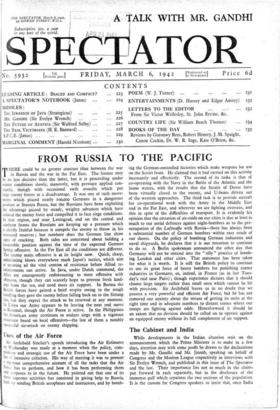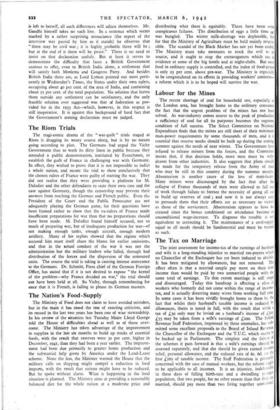The Cabinet and India
While developments in the Indian situation wait on the announcement which the Prime Minister is to make in a few days, attention may with some profit be drawn to the declarations made by Mr. Gandhi and Mr. Jinnah, speaking on behalf of Congress and the Moslem League respectively in interviews with Sir Evelyn Wrench, and published in this issue of The Spectator and the last. Their importance lies not so much in the claims put forward in each separately, but in the disclosure of the immense gulf which separates the two sections of the population. It is the custom for Congress speakers to insist that, once India is left to herself, all such differences will adjust themselves. Mr. Gandhi himself takes no such line. In a sentence which seems marked by a rather surprising insouciance (the report of the interview was passed by him as it stands) he observes that " there may be civil war ; it is highly, probable there will be ; but at the end of it there will be peace." There is no need to insist on that declaration unduly. But at least it serves to demonstrate the difficulty that faces a British Government anxious to offer, even to British India alone, a settlement that will satisfy both Moslems and Congress Party. And besides British India there are, as Lord Lytton pointed out most perti- nently in Wednesday's Times, the States under their own rulers, occupying about 4o per cent. of the area of India, and containing about 25 per cent. of the total population. No solution that leaves them outside any settlement can be satisfactory, and the only feasible solution ever suggested was that of federation as pro- vided for in the 1935 Act—which, however, in this respect is still inoperative. It is against this background of hard fact that the Government's coming declaration must be judged.



























